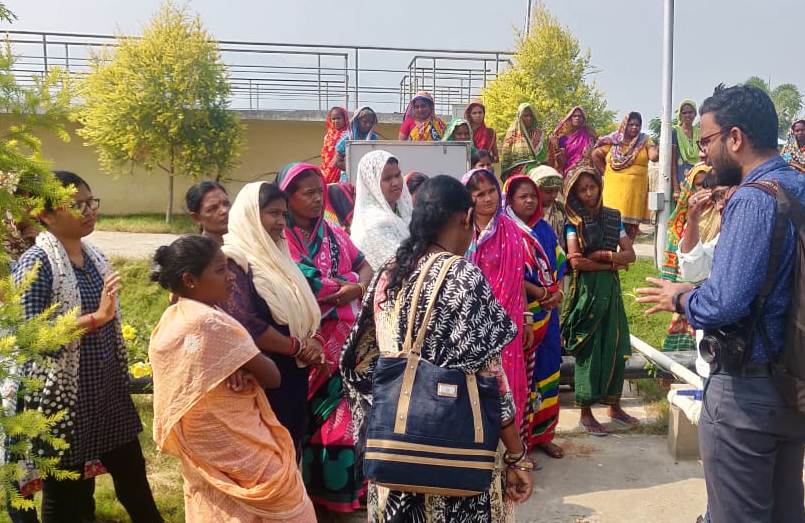Berhampur: In a drive to strengthen self help groups (SHGs) in Ganjam district and to empower womenfolk here, Berhampur Municipal Corporation (BeMC) has decided to entrust the management of a new septage treatment plant at Mahuda.
According to reports, 30 women members belonging to Agrata City Level Federation (ACLF) – the SHG selected for this purpose – are undergoing training on septage management since November 19.
As 20 selected members of the SHG will be trained in septage treatment, 10 others will be trained in marketing, branding and processing of co-composts produced in the plant, BeMC sources informed.
Experts belonging to Technical Support Unit (TSU) of state housing and urban development department are imparting training to ACLF members. After successful completion of training, only 10 women of the group will be assigned the management of septage treatment plant, on the basis of their competency.
Worthy to note, the septage treatment plant was inaugurated at Mahuda of Berhampur in Ganjam district October 26, 2018 by Chief Minister Naveen Patnaik for effective and scientific management of septage and municipal waste of the city.
However, the management was initially handed over for a year to Odisha Water Supply and Sewerage Board (OWSSB), after completion of the project. Now, BeMC authorities have decided to permanently entrust the management to SHGs.
Notably, people in rural and urban areas have been using human excreta for centuries to fertilise farmlands, fishponds and to maintain or replenish the organic fraction (humus layer) of the soil. This continues to be common in most of the developing countries.
Due to its low nutrient content, compost from municipal solid waste qualifies mostly as a conditioner of soil physical properties than soil fertility. Given the increasing attention to faecal sludge management from septic tanks and latrines, co-composting of both waste streams could be a win-win option to increase compost nutrient value.
Co-composting is the controlled aerobic degradation of organics, using more than one feedstock (faecal sludge and organic solid waste). Faecal sludge has high moisture and nitrogen content, while biodegradable solid waste is high in organic carbon. By combining both, benefits of each can be used for optimization.
PNN
